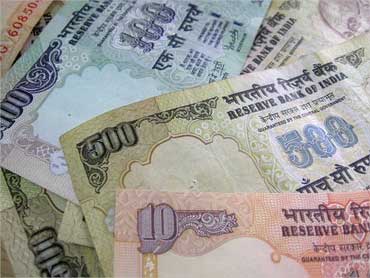
Richard Layard, popularly known as the 'happiness economist' and currently professor at the London School of Economics, says that Bhutan's happiness index cannot be replicated because of its complexity.
The 78-year old British economist tells Business Standard about his research that the so-called 'zero tax' is not the most efficient at least when it comes to happiness.
Layard cautions that the looming 'fiscal cliff' (tax hikes and spending cuts) in the US will take 4-5 per cent of the gross national product from the US economy and will also impact the countries that export to the US.
Excerpts:
Bhutan's happiness index has not been accepted by others. What could be the reason?
I think an effective index should not be too complicated.
It is the complexity that deters people.
People want to know how the number is arrived at to believe the number.
But I would like to praise the work of the Bhutanese government in collecting all this multi-dimensional material and this is right.
They've done well in, including things that previously were not included, like spiritual life.
That is an important contribution.
However, it is aggregated in a very complicated way.
. . .

Critics say the happiness index can be misused by politicians, by saying that the poor are happy, which might work as an excuse for them to keep people in poverty.
What is your take on it?
Of course, we do not want it to be manipulated.
It should be collected by statistical offices and independently verified like all other public statistics.
It is very important for the Organisation for Economic Co-operation and Development to define a world standard for the index.
Statistical offices can resist any kind of pressure from their governments.
. . .

For developing countries, economic growth is of paramount importance for any foreseeable future.
By including happiness in statistics, are economists not trying to divert attention?
What these indices are showing is that there are many other dimensions than poverty that impact people's lives.
I think an important thing that can come out for developing countries from this movement is a more cautious approach to economic growth at any cost.
. . .

China has seen tremendous economic growth over a long period. Does it mean the Chinese may not be that happy?
In China, happiness has not risen despite the greatest growth of income ever in the world history.
This is so because there is so much dislocation and alienation of people from their families and traditional values.
The people feel a degree of insecurity in their hearts, even if they are making so much of money.
Development would mean not only the removal of poverty but also preservation of family ties and social support system or the development of new ones.
. . .

You have said in your research that zero taxes do not result in higher level of happiness.
That's hard to believe. . .
We have experienced in the West the situation where we became a lot richer but happiness did not increase.
It is a paradox, as every individual wants to become richer.
When society as a whole becomes richer, people don't become happier because they compare their income with others, which is relative income.
This effect may not turn economic growth into a zero sum game entirely but it will likely diminish the benefits people draw from their hard work.
When people say the most efficient tax is zero tax, it is not true, as these taxes have some positive effect on dumping down the attempt of everyone to get higher on the ladder compared to others.
Taxes counteract the cognitive bias that causes people to work more than what is good for their happiness.
Taxes should help citizens preserve a healthy work-life balance.
. . .

The US is moving closer to the fiscal cliff. How will that impact the US and would that negatively impact developing countries like India?
It is terrible.
It would be difficult to go over the fiscal cliff because, I think, they will be taking some four-five per cent of the GNP to go over the cliff, which will affect employment as well.
They will have to do some compromise such as not to do some huge tax increases and not to have huge thrust on expenditure.
All countries exporting to the US will suffer.
The situation is extremely worrying -- this is all you can say.
The situation in Europe is also worrying, as there is a complete disregard for lessons from the 1920s.